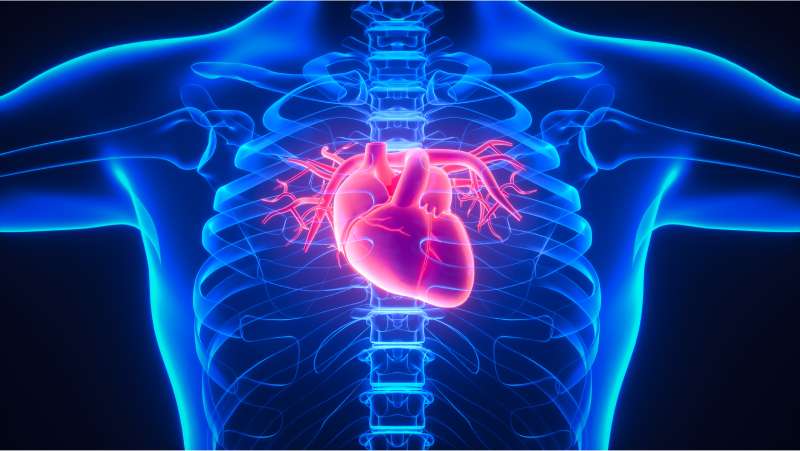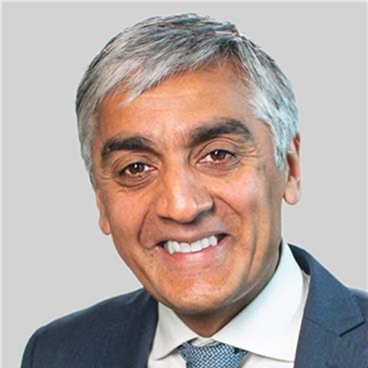This category encompasses contemporary developments in cardiovascular medicine, with a focus on the prevention, diagnosis, and management of cardiac disease. Lectures emphasize evidence-based practice, emerging therapies, and the integration of research into clinical care.
Learn from leading specialists in the field of Cardiology, carefully selected from around the globe. Our courses explore everything from breakthrough treatments to everyday clinical challenges, equipping you with the insight and skills to provide exceptional care.
See our courses


Medibuddy Academy offers an exceptional range of courses that are both clinically relevant and thoughtfully designed. The platform’s flexibility allows me to keep learning alongside a demanding schedule. It's a must-have for any medical professional committed to continuous improvement.

This course focuses on the assessment and management of cardiovascular health in athletes and physically active individuals. Participants will review physiological adaptations to exercise, screening for underlying cardiac disease, risk assessment, and recommendations for safe participation in competitive and recreational sports.
 Professor Sanjay Sharma
Professor Sanjay Sharma

This course provides a comprehensive overview of exercise testing for the evaluation of cardiovascular function and disease. Participants will explore indications, protocols, interpretation of physiological and electrocardiographic responses, and integration of findings into clinical management and exercise prescription.

This course provides an overview of arrhythmogenic right ventricular and biventricular cardiomyopathy, with emphasis on genetic mechanisms, arrhythmic risk, and diagnostic strategies. Participants will explore medical, ablation, and device-based therapies, as well as recommendations for lifestyle modification and exercise restriction.
 Dr Gherardo Finocchiaro
Dr Gherardo Finocchiaro
 Prof. Alessandro Zorzi
Prof. Alessandro Zorzi
 Prof. Domenico Corrado
Prof. Domenico Corrado
 Dr Anna Marciniak
Dr Anna Marciniak
 Associate Prof. Chiara Bucciarelli-Ducci
Associate Prof. Chiara Bucciarelli-Ducci
 Prof. J. Peter van Tintelen
Prof. J. Peter van Tintelen
 Prof. Anneline te Riele
Prof. Anneline te Riele
 Prof. Mary Sheppard
Prof. Mary Sheppard
 Prof. Magdi Saba, MB BCh, MSc, MD
Prof. Magdi Saba, MB BCh, MSc, MD
 Prof. Michael Papadakis
Prof. Michael Papadakis
 Prof. Flavio D'Ascenzi
Prof. Flavio D'Ascenzi
 Dr Alexandros Protonotarios
Dr Alexandros Protonotarios

This course provides a detailed overview of myocarditis, encompassing infectious, autoimmune, and idiopathic etiologies. Participants will examine pathophysiology, clinical manifestations, diagnostic imaging and laboratory evaluation, and evidence-based therapeutic approaches, including immunomodulatory therapy and supportive care.

This course examines cardiac involvement in systemic infiltrative disorders, including amyloidosis, sarcoidosis, and hemochromatosis. Participants will explore mechanisms of myocardial infiltration, diagnostic evaluation with imaging and biomarkers, and contemporary management strategies to preserve cardiac function and improve outcomes.

This course addresses the pathogenesis, clinical presentation, and management of infective endocarditis. Participants will review risk factors, microbiological considerations, diagnostic criteria, imaging modalities, and both medical and surgical treatment approaches, including strategies for prevention and long-term follow-up.

This course examines the pathophysiology, genetic basis, and clinical manifestations of hypertrophic cardiomyopathy. Participants will explore diagnostic imaging, risk stratification for sudden cardiac death, medical and interventional management, and surgical options including septal myectomy.

This course reviews the aetiology, pathophysiology, and clinical features of dilated cardiomyopathy. Participants will study diagnostic approaches, genetic and acquired causes, guideline-directed medical therapy, device-based interventions, and advanced options including transplantation.

This course reviews cardiomyopathies secondary to systemic conditions, including endocrine, metabolic, toxic, and inflammatory causes. Participants will examine pathophysiological mechanisms, diagnostic evaluation, and management strategies tailored to underlying disease processes.

This course addresses infiltrative cardiomyopathies, including amyloidosis, sarcoidosis, and storage disorders. Participants will explore diagnostic approaches with imaging and biomarkers, disease-specific medical therapies, and indications for device-based and advanced interventions.

This course explores the spectrum of pericardial disorders, including pericarditis, pericardial effusion, constrictive pericarditis, and tamponade. Participants will review pathophysiology, clinical presentation, diagnostic evaluation including imaging and biomarkers, and evidence-based medical, percutaneous, and surgical management strategies.

This course provides a detailed exploration of the anatomy of the coronary circulation and the role of coronary angiography in the diagnosis and management of ischemic heart disease. Participants will review normal and variant coronary anatomy, collateral circulation, and the pathophysiological basis of atherosclerotic disease.

This course provides a comprehensive review of the pathophysiology, diagnosis, and management of acute coronary syndromes (ACS), including unstable angina, NSTEMI, and STEMI. Participants will explore the mechanisms of plaque rupture and thrombosis, clinical presentation, and the use of biomarkers, electrocardiography, and imaging in early diagnosis.

This course examines the pathophysiology, diagnosis, and management of stable ischemic heart disease. Participants will explore mechanisms of myocardial ischemia, risk stratification, and the use of functional and anatomical investigations to guide therapy.

This course provides a comprehensive overview of transthoracic and transesophageal echocardiography, focusing on cardiac structure and function assessment. Participants will learn principles of image acquisition, interpretation of standard views, and the evaluation of valvular, myocardial, and pericardial abnormalities.

This course introduces cardiovascular magnetic resonance imaging as a non-invasive tool for evaluating cardiac anatomy, function, perfusion, and tissue characterization. Participants will explore imaging protocols, contrast use, and interpretation of common pathologies including cardiomyopathies, ischemic disease, and congenital abnormalities.

This course covers the principles and clinical applications of cardiac computed tomography, including coronary artery imaging, calcium scoring, and evaluation of structural heart disease. Participants will review imaging acquisition, reconstruction techniques, and interpretation of normal and pathological findings, with a focus on diagnostic accuracy, radiation safety, and clinical integration in cardiology practice.

This course examines non-conventional imaging approaches in cardiology, including nuclear cardiology, positron emission tomography (PET), and advanced hybrid imaging techniques. Participants will learn the indications, advantages, limitations, and interpretation of these modalities, with emphasis on selecting the most appropriate imaging strategy for complex cardiovascular cases and integrating findings into patient management.

This course provides a detailed exploration of aortic valve pathology, including aortic stenosis and regurgitation. Participants will examine the pathophysiology, clinical presentation, diagnostic evaluation using echocardiography and advanced imaging, and evidence-based management strategies, including surgical and transcatheter interventions.

This course examines disorders of the mitral valve, including mitral regurgitation and stenosis. Participants will review mechanisms, clinical features, imaging assessment, and management options ranging from medical therapy to surgical repair and percutaneous interventions. Emphasis is placed on timely diagnosis, risk stratification, and patient-specific treatment planning.

This course explores pathology of the tricuspid and pulmonary valves, including regurgitation, stenosis, and congenital abnormalities. Participants will examine pathophysiology, clinical assessment, and imaging-based evaluation, alongside contemporary therapeutic approaches encompassing medical management, surgical repair, and percutaneous interventions.

This course provides a comprehensive overview of aortic disease, including aneurysms, dissections, and connective tissue disorders. Participants will explore the underlying pathophysiology, risk factors, diagnostic imaging modalities, and evidence-based management strategies. Emphasis is placed on early detection, surveillance, and the integration of surgical and endovascular approaches.

This course develops proficiency in electrocardiographic analysis, including recognition of normal variants, arrhythmias, conduction disturbances, ischemic changes, and other clinically relevant patterns. Participants will integrate ECG findings with clinical context to support accurate diagnosis and informed management decisions.

This course examines the evaluation and management of syncope, exploring its multifactorial etiologies, including cardiac, neurological, and vasovagal causes. Participants will review clinical assessment, diagnostic testing, risk stratification, and evidence-based management strategies to optimise patient safety and outcomes.

This course explores the mechanisms, clinical presentation, and management of bradyarrhythmias, including sinus node dysfunction and atrioventricular conduction disturbances. Participants will review diagnostic evaluation, electrophysiological principles, and evidence-based treatment options, including pharmacological therapy and device implantation.

This course provides an in-depth overview of atrial fibrillation, covering its epidemiology, pathophysiology, clinical assessment, and risk stratification for thromboembolism. Participants will examine both pharmacological and interventional management strategies, including rate and rhythm control, anticoagulation, and catheter ablation, integrating current guideline recommendations.

This course reviews the spectrum of supraventricular arrhythmias, including atrial flutter, paroxysmal supraventricular tachycardia, and other atrial tachyarrhythmias. Participants will explore mechanisms, clinical presentation, diagnostic evaluation, and evidence-based management, including pharmacological, device-based, and ablation strategies.

This course examines ventricular arrhythmias, including premature ventricular complexes, ventricular tachycardia, and ventricular fibrillation. Participants will review underlying pathophysiology, risk assessment, diagnostic evaluation, and management strategies, including pharmacotherapy, catheter ablation, and implantable defibrillators.

This course provides a comprehensive overview of device-based therapies for rhythm disorders and heart failure. Participants will explore indications, implantation techniques, programming, and follow-up of pacemakers, cardiac resynchronisation therapy devices, and implantable cardioverter-defibrillators, with emphasis on patient selection and optimisation of outcomes.

This course examines the mechanisms, diagnostic evaluation, and management of heart failure with reduced ejection fraction (HFrEF). Participants will review underlying etiologies, imaging and biomarker-based assessment, and evidence-based pharmacological and device therapies, with an emphasis on improving morbidity, mortality, and quality of life.

This course focuses on heart failure with preserved ejection fraction (HFpEF), exploring its pathophysiology, risk factors, and diagnostic challenges. Participants will examine contemporary strategies for assessment, imaging, biomarker evaluation, and management, with emphasis on individualized care and symptom optimisation.

This course addresses the timely identification and management of acute heart failure presentations. Participants will explore pathophysiology, clinical assessment, hemodynamic monitoring, pharmacologic and non-pharmacologic interventions, and escalation strategies to stabilise patients and prevent complications.

This course reviews cutting-edge therapies for advanced heart failure, including mechanical circulatory support, ventricular assist devices, cardiac transplantation, and novel pharmacologic agents. Participants will explore patient selection, perioperative considerations, and long-term management to optimise survival and functional outcomes.

This course examines the distribution, determinants, and population impact of cardiovascular disease across diverse settings. Participants will explore global and regional trends in incidence, prevalence, morbidity, and mortality, alongside the influence of modifiable and non-modifiable risk factors.

This course provides an in-depth review of the role of biomarkers in the diagnosis, risk stratification, and management of cardiovascular disease. Participants will examine the biochemical and physiological basis of established markers such as troponins, natriuretic peptides, and C-reactive protein, as well as the emerging utility of novel biomarkers in guiding clinical decision-making.

This course provides an in-depth exploration of pulmonary hypertension, including classification, pathophysiology, diagnostic evaluation, and management strategies. Participants will examine pharmacologic therapies, interventional procedures, and multidisciplinary approaches to optimise patient outcomes and long-term prognosis.

This course covers the epidemiology, pathophysiology, and clinical presentation of pulmonary embolism. Participants will review risk stratification, diagnostic strategies including imaging and laboratory assessment, and evidence-based management options, encompassing anticoagulation, thrombolysis, and interventional therapies.

This course provides a comprehensive overview of right heart catheterisation techniques and interpretation of invasive haemodynamic measurements. Participants will examine indications, procedural considerations, waveform analysis, and integration of haemodynamic data into the diagnosis and management of cardiac and pulmonary vascular disease.

This course explores the pathophysiology, clinical presentation, and management of common simple congenital heart defects, including atrial and ventricular septal defects. Participants will review diagnostic evaluation, natural history, and evidence-based strategies for medical, percutaneous, and surgical interventions

This course examines selected congenital cardiac anomalies, including coarctation of the aorta, patent ductus arteriosus, coronary anomalies, and Ebstein’s anomaly. Participants will explore anatomical features, pathophysiology, diagnostic approaches, and current medical, interventional, and surgical management strategies.

This course examines complex congenital heart defects, including Tetralogy of Fallot, hypoplastic heart syndromes, and transposition of the great arteries. Participants will explore anatomical and physiological considerations, diagnostic strategies, surgical and interventional management, and long-term follow-up, with emphasis on multidisciplinary care for optimal outcomes.

This course provides an overview of primary and secondary cardiac tumours, including benign and malignant lesions. Participants will review pathophysiology, clinical presentation, imaging modalities for diagnosis, and evidence-based approaches to surgical and medical management.

This course explores the cardiovascular effects of cancer and its therapies, including cardiotoxicity from chemotherapy and radiotherapy. Participants will examine mechanisms, risk stratification, diagnostic evaluation, and evidence-based strategies for prevention, monitoring, and management of cardiac complications in oncology patients.

This course addresses the evaluation and management of cardiovascular disease in pregnant patients. Participants will explore physiological adaptations of pregnancy, risk stratification, diagnostic challenges, and evidence-based strategies for maternal and fetal safety, including medical and interventional management of congenital and acquired heart disease.

This course examines sex-specific aspects of cardiovascular disease, including differences in pathophysiology, presentation, risk factors, and outcomes. Participants will explore diagnostic strategies, tailored preventive measures, and therapeutic approaches to optimise cardiovascular care for women across the lifespan.

This course provides a comprehensive review of infective endocarditis, encompassing pathophysiology, diagnostic criteria, and contemporary management strategies. Participants will explore the role of echocardiography, blood cultures, and advanced imaging in establishing diagnosis, as well as antimicrobial regimens tailored to causative pathogens. Surgical indications, operative techniques, and postoperative care are examined in detail, with emphasis on multidisciplinary collaboration to optimise outcomes in this complex and high-risk condition.

This course provides a comprehensive exploration of hypertension, addressing its epidemiology, pathophysiology, diagnosis, and management. Participants will review the molecular and hemodynamic mechanisms underlying blood pressure regulation, the influence of genetic and environmental factors, and the clinical implications of uncontrolled hypertension.

This course examines the pathophysiology, diagnosis, and management of dyslipidaemias in the context of cardiovascular disease prevention and treatment. Participants will explore the molecular mechanisms of lipid metabolism, the genetic and secondary causes of lipid abnormalities, and their contribution to atherosclerosis and related complications.

This course addresses the principles and practices of cardiovascular disease prevention and the structured rehabilitation of patients following cardiac events. Participants will examine primary and secondary prevention strategies, including risk factor modification, lifestyle intervention, and pharmacological therapy, guided by current international recommendations.